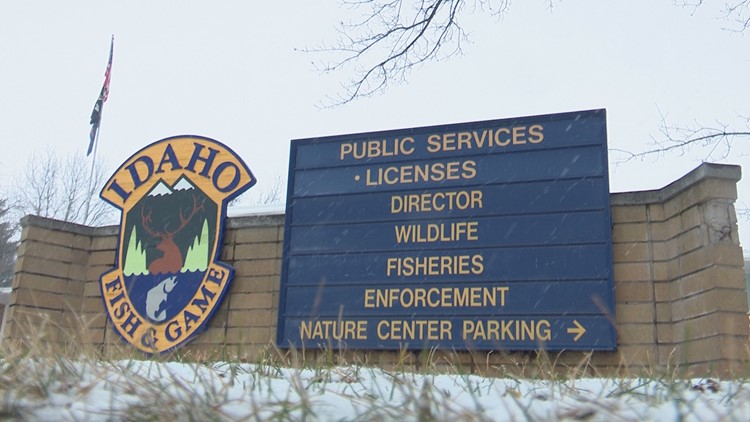BOISE, Idaho — Wildlife officials can continue setting up checkpoint stations to stop all vehicles to enforce hunting and fishing regulations, a U.S. District Court judge has ruled.
Chief U.S. District Court Judge David C. Nye last week dismissed Steve Tanner’s lawsuit seeking to ban the roadblocks.
“I'm disappointed,” Tanner said Monday. “It's ludicrous to say I didn't have my Fourth Amendment rights violated.”
The Fourth Amendment to the U.S. Constitution protects people from unreasonable searches and seizures. Tanner said he has not decided about appealing to the 9th U.S. Circuit Court of Appeals.
Tanner, who wasn't hunting or fishing, was arrested and cited in late 2017 for failing to stop at a check station and for eluding a law enforcement officer after driving past a check station near his northern Idaho home.
Tanner pleaded not guilty, according to court records, and the charges were dismissed in early 2018 after a state magistrate judge found officers lacked probable cause to stop Tanner. The Boundary County prosecutor's office declined to comment on the case.
Tanner, who has run for a seat in the state Legislature at least three times, then filed a civil lawsuit in state court against Fish and Game as well as officers involved in his arrest. He sought $130,000 in damages and to ban check stations from stopping those not hunting, fishing or trapping.
The defendants had the case moved to federal court.
Nye also said the magistrate judge's ruling in state court that led to dismissing the charges against Tanner was not consistent with previous rulings in higher state courts, including the state Supreme Court, that allowed the stopping of all vehicles even though the occupants of some weren't hunting, fishing or trapping.
Nye said he disagreed with the magistrate judge's ruling, and that the wildlife officers did have probable cause to stop Tanner.
Tanner also argued that the checkpoints for those not hunting or fishing amounted to an “unreasonable” seizure under the Fourth Amendment of the U.S. Constitution.
Nye agreed that the checkpoints are a “seizure," but that not all seizures are unreasonable.
He cited a two-step process analysis devised by the 9th U.S. Circuit Court of Appeals to determine reasonableness.
First, Nye said, blanket checkpoints for general crime control are invalid under the Fourth Amendment. Nye said Fish and Game checkpoints do not fall under general crime control because they "are closely connected to the goal of effectively managing the state's wildlife resources.”
Second, he said the court had to consider how the Fish and Game checkpoints advance public interest, and the level of interference the checkpoints have on individual liberty.
Nye wrote the state has a compelling interest in managing its natural resources and wildlife. He said that interest was not only put into state law, but also acknowledged by the state Supreme Court.
As far as damage to individual liberties caused by the checkpoint stations, Nye wrote that motorists not engaged in hunting, fishing or trapping are stopped for only a few seconds before being allowed to proceed, and are not subject to hunting and fishing license checks or game inspections.
“The duration of the seizure and intensity of the IDFG wildlife checkpoint investigation of non-sportsman is minimal and reasonable,” Nye wrote.
Hunting and fishing activities generate millions of dollars annually, drawing not only residents but enthusiasts from out of state.
It’s not clear how much damage poachers do to wildlife populations, but wildlife officials sometimes cite trophy animals killed by poachers who were then no longer available for hunters who play by the rules.
Department of Fish and Game officials didn’t return phone calls from the AP.



